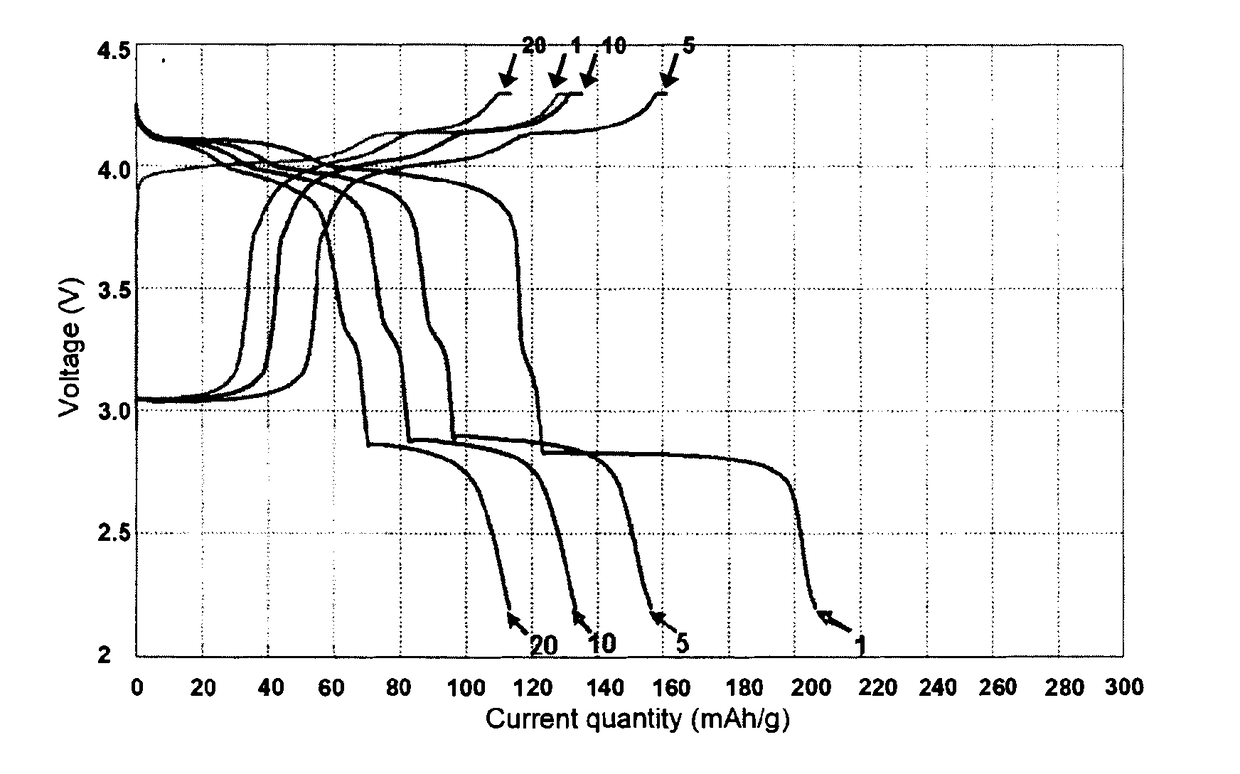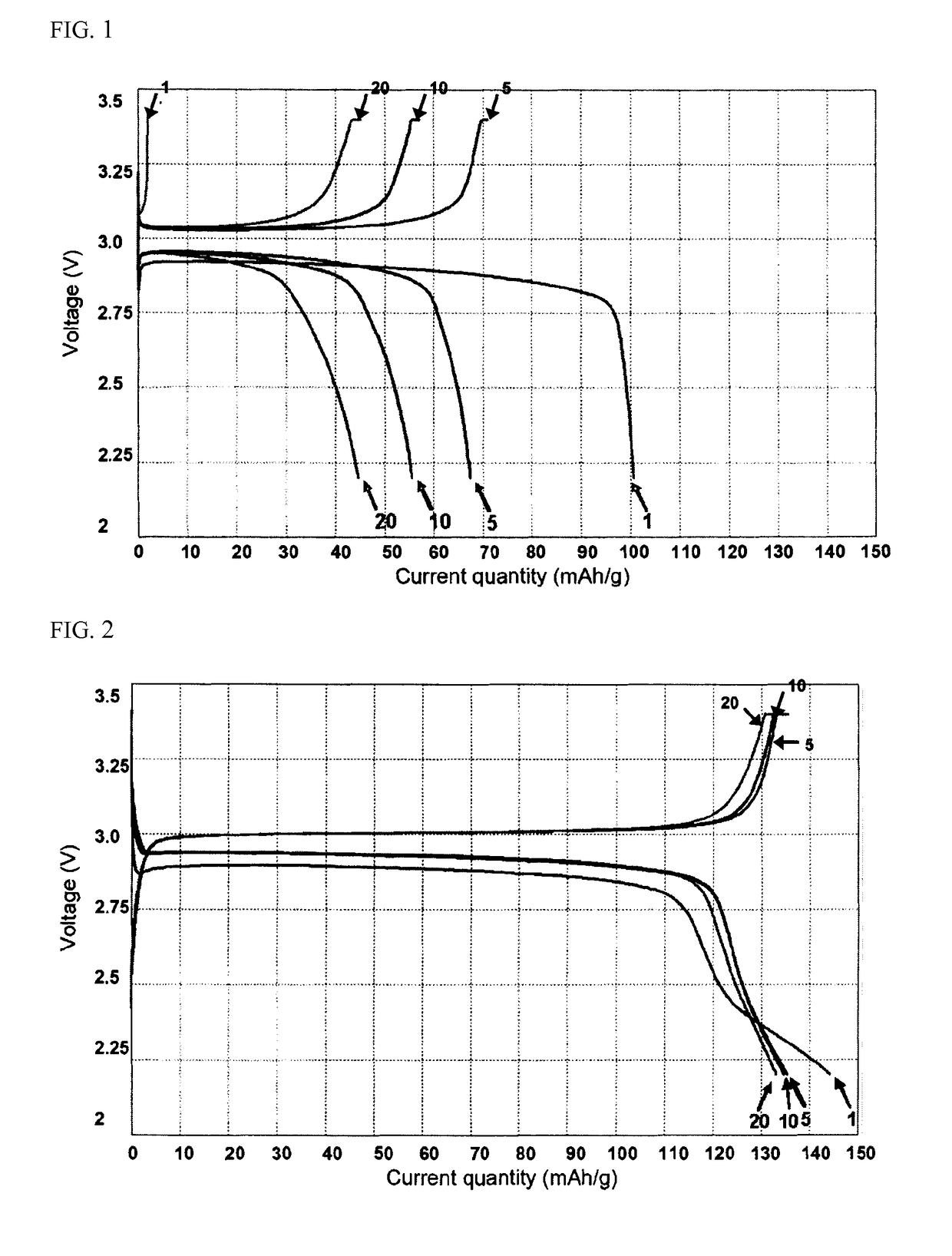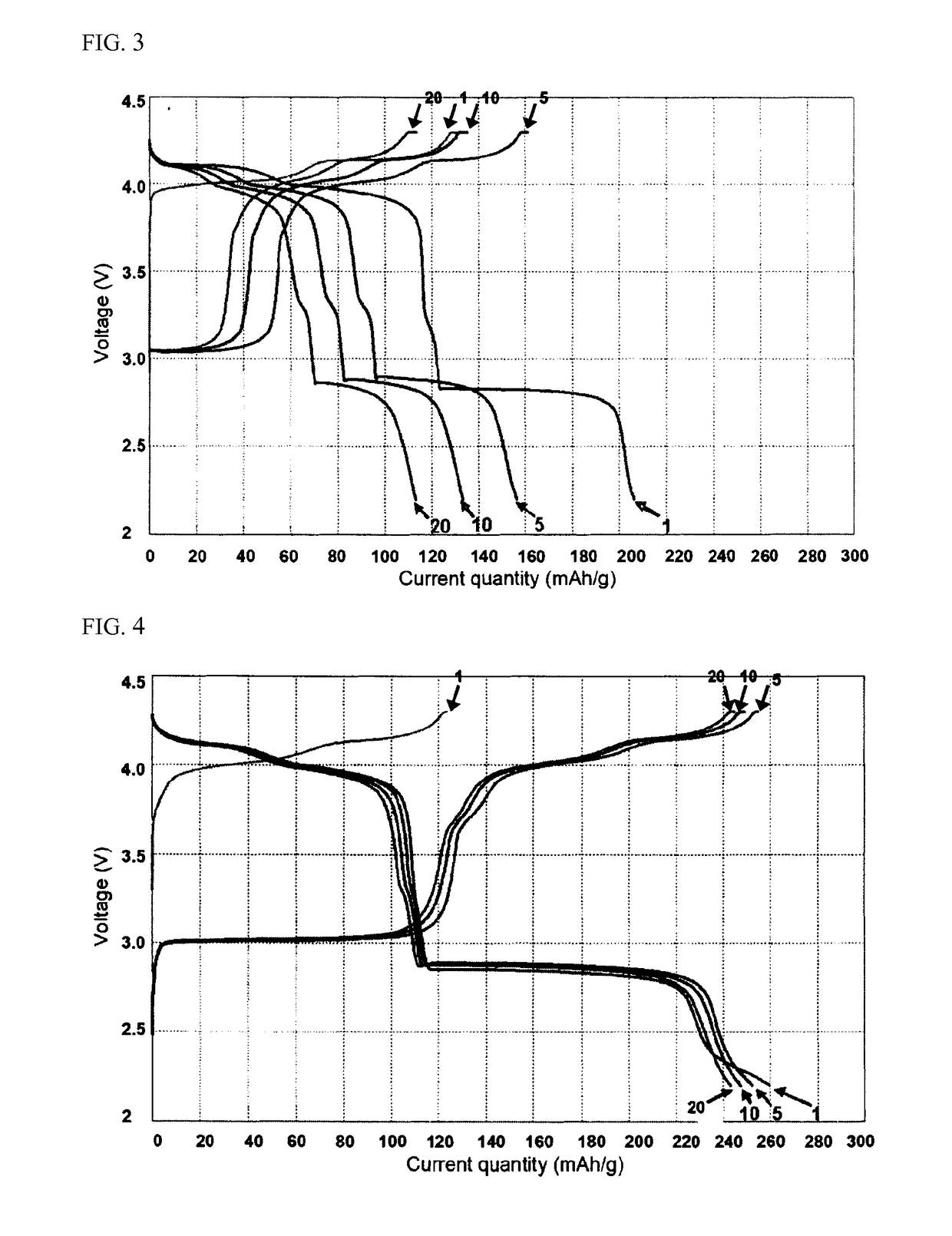Cathode active material comprising lithium manganese oxide capable of providing excellent charge-discharge characteristics at 3V region as well as 4V region
a lithium manganese oxide and active material technology, applied in the direction of non-aqueous electrolyte accumulator electrodes, cell components, electrical apparatuses, etc., can solve the problems of reducing price competitiveness, low structural stability, and high cost of cobalt used as a raw material
- Summary
- Abstract
- Description
- Claims
- Application Information
AI Technical Summary
Benefits of technology
Problems solved by technology
Method used
Image
Examples
experimental example 1
[0064]By adding each cathode mix prepared in Example 1 and Comparative Example 1 to NMP, a slurry was prepared and then applied to a cathode current collector. The cathode current collector was rolled and dried to form a cathode for a secondary battery. By interposing a porous polyethylene separator between the formed cathode and a lithium metal based anode and introducing a lithium electrolyte therebetween, a coin type lithium secondary battery was fabricated.
[0065]The fabricated battery was subjected to repeated charge / discharge at 0.1 C to determine variation in capacities depending upon the number of cycles.
[0066]FIG. 1 shows variation in capacities of the fabricated secondary battery according to Comparative Example 1 to increase in cycles in the 3V region (2.5 to 3.5V).
[0067]Referring to FIG. 1, charging does not occur in the 3V region during first charging, while lithium ions are discharged from a lithium anode in the 3V region during first discharging. Thereafter, the lithiu...
experimental example 2
[0074]After dispersing 1 g of the graphite-coated spinel lithium manganese oxide prepared in Example 1 in 5 ml of an electrolyte (EC:EMC=1:2 (v / v %), 1M LiPF), a container including the dispersion was sealed and stored at 25° C. After 1 week, the dispersion became colorless and transparent. On the other hand, when 1 g of the spinel lithium manganese oxide prepared in Comparative Example 1 without graphite coating was dispersed in the same electrolyte and stored for 1 week under the same conditions as described above, it was observed that the dispersion was became violet and translucent. From these results, it can be confirmed that negative reaction between the graphite-coated spinel lithium manganese oxide prepared in Example 1 and the electrolyte is considerably inhibited owing to coating effects.
example 2
[0075]A cathode mix including 62 wt. % of a spinel lithium manganese oxide, 26 wt. % of graphite, 2 wt. % of Danka black and 10 wt. % of PVDF was prepared. More particularly, after milling the spinel lithium manganese oxide and the graphite in the foregoing content ratios, the prepared graphite-coated spinel lithium manganese oxide was mixed with the Danka black and PVDF in the foregoing content ratios, thus obtaining a cathode mix.
PUM
| Property | Measurement | Unit |
|---|---|---|
| thickness | aaaaa | aaaaa |
| thickness | aaaaa | aaaaa |
| pore diameter | aaaaa | aaaaa |
Abstract
Description
Claims
Application Information
 Login to View More
Login to View More - R&D
- Intellectual Property
- Life Sciences
- Materials
- Tech Scout
- Unparalleled Data Quality
- Higher Quality Content
- 60% Fewer Hallucinations
Browse by: Latest US Patents, China's latest patents, Technical Efficacy Thesaurus, Application Domain, Technology Topic, Popular Technical Reports.
© 2025 PatSnap. All rights reserved.Legal|Privacy policy|Modern Slavery Act Transparency Statement|Sitemap|About US| Contact US: help@patsnap.com



